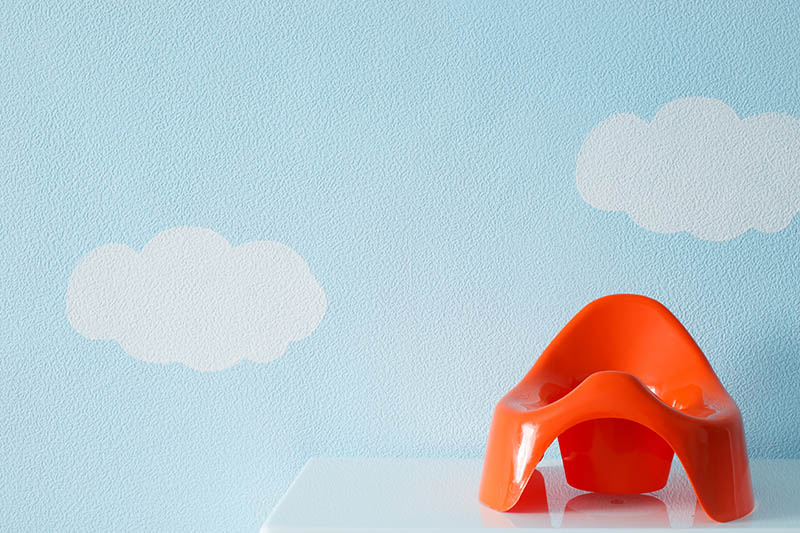So your child has reached the age where you’ve begun potty training and after a lot of effort and hard work, you’ve managed to get the day time potty training down. But what about the night time?
It’s not uncommon for your little one to still have night time accidents well after they’ve been potty trained. This is where the concept of night time potty training comes into play.
It’s almost exactly the same as day time potty training, except with a few added steps to prepare for bed.
Now, I’ll say it again, you shouldn’t worry too much if your child is still wetting their bed – it’s much harder to maintain bladder control at night for a young child, especially when they’re fast asleep and not in control of their actions.
Only when they’re a 5 year old and still wetting their bed should you be worried about something a bit more serious, but more often than not, it’s just your child taking a bit longer to adapt to the whole process – so even then, there’s no need to stress about it too much.
While I did say that day time and night time potty training are virtually the same, toilet training that’s done at night requires more effort on the parents’ side of things.
You have to realize that to potty train your child at night means being ready to stay awake in the middle of the night to monitor their activity – depending on the strategy that you’re using.
Night Time Potty Training Tips
1. Correlate day time training with night time training
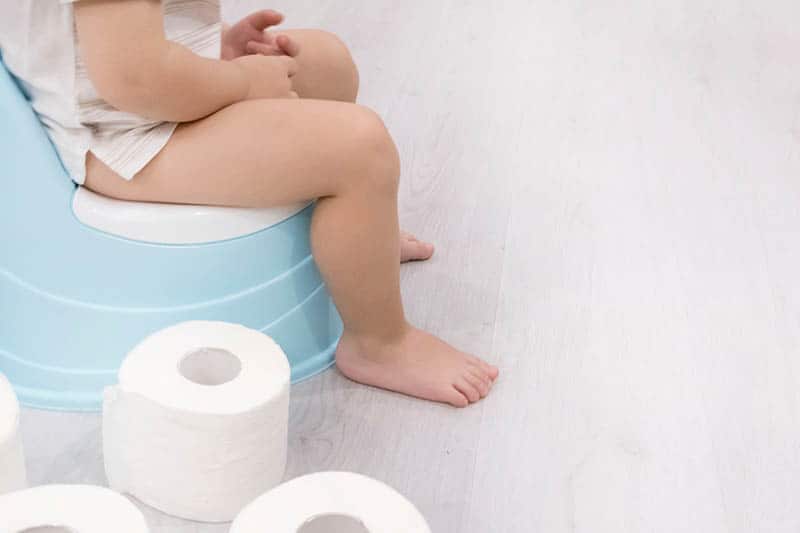
Many pediatricians suggest doing it close to the period when you begin their day time training routines because it’ll be much easier for them to catch onto it rather than doing it later on.
The recommended age for starting potty training is when they’re around 2 to 3 years old as that’s when their developmental leaps have set in and they’re ready for the complex process of controlling their bladder functions and finally getting rid of the diaper.
If a more specific indicator is needed, then you should probably start night training your little one when they start having longer periods of dryness throughout the day – when they have dry diapers for at least two hours consistently, for example.
RELATED: Pull Up Diapers: 9 Best Training Pants For Your Toddler
2. Tailor the plan to the child
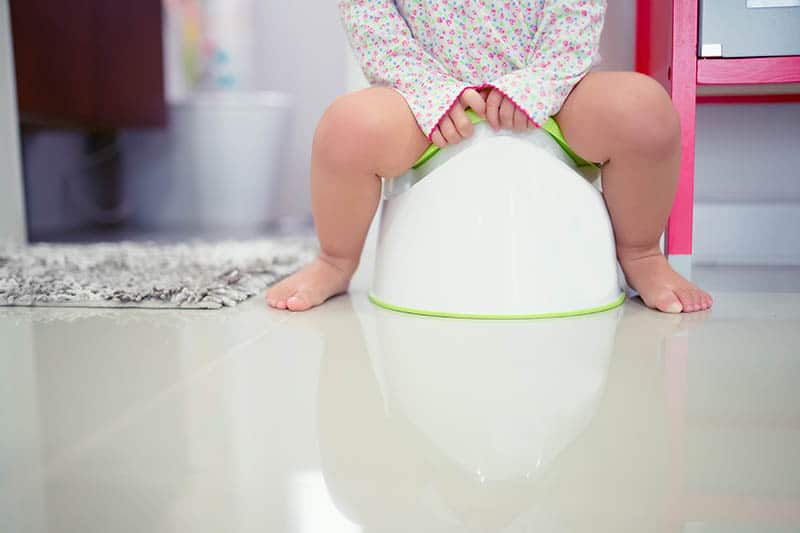
This also means that the relevant training process for each child should be different, constructed around their habits and their level of adaptability.
Start with the day time potty training plan as that needs to be achieved first. I highly recommend using potty training books for extra motivation.
Once they get the hang of it, it’s time to start employing the various night time potty training strategies.
It helps to note what their daily diet is and how many times they tend to ‘go’ in a 24 hour period.
This way you can even start anticipating when an accident is going to happen and stop it before it does, saving one more sheet from being soiled in the process.
3. A visit to the toilet as part of the bedtime routine
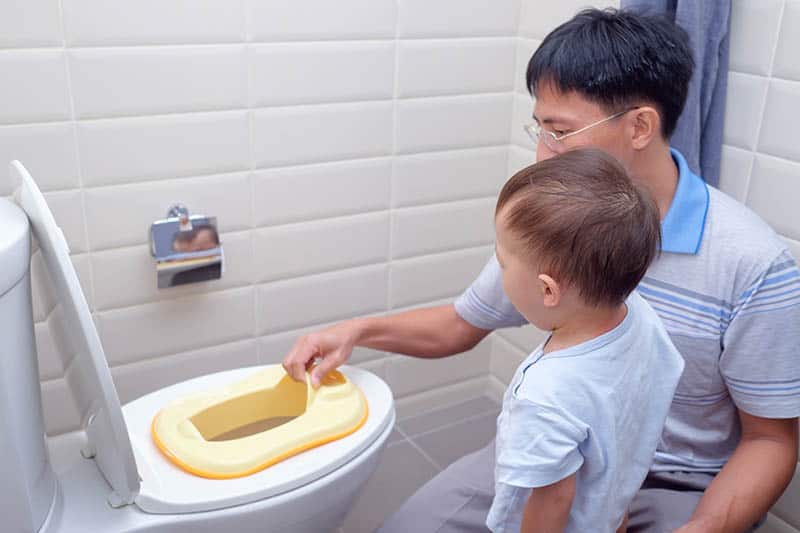
The same thing goes for when they wake up, since bowels tend to work overnight – so get them to go to the toilet and do their business as soon as they get up.
Doing it this way lets you show them how relieved they’ll be throughout the day with an empty bladder, allowing for more vibrant playtime.
4. Limit liquid intake before bedtime
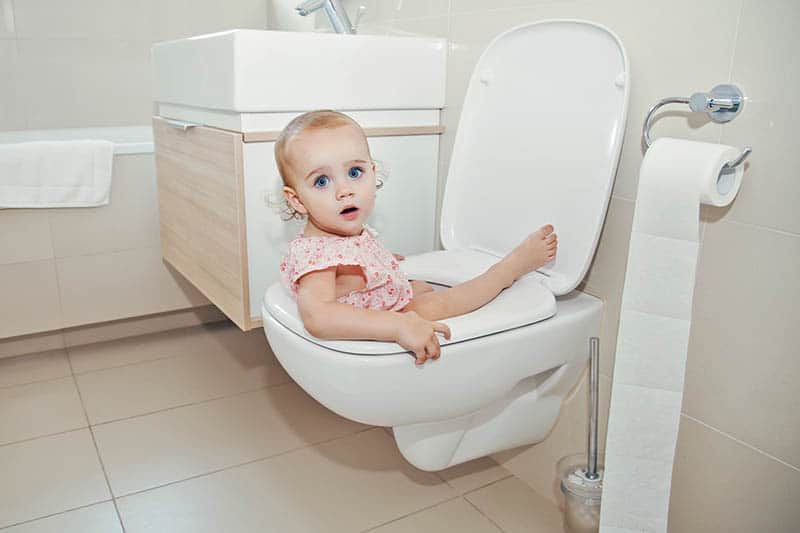
That way she wouldn’t have anything in her bladder to cause an accident, keeping her diapers (and underpants later) dry more often.
Plus, I had a lot less mess to clean up and fewer mattress pads to change.
5. Don’t give them sodas or juices
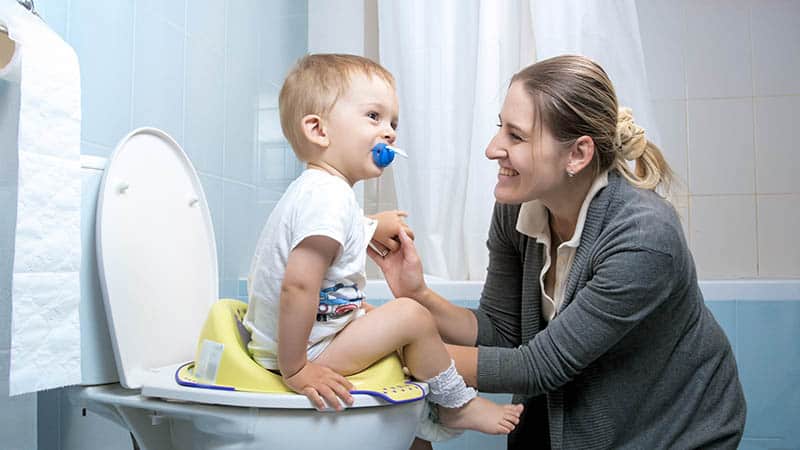
Not to mention that your child may have trouble falling asleep in the first place if they drink a soda a few hours before bed.
Stick to water and warm drinks as they’ll help them fall asleep much better.
6. Make trips to the toilet during the night
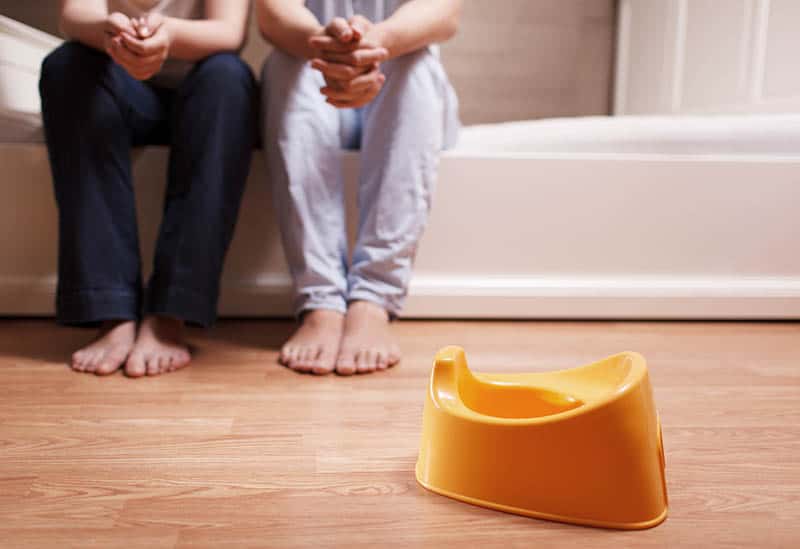
My son and my daughter both wet their beds quite frequently when they were little.
My husband and I had quite the issue when we were trying to potty train them during their respective night time potty training periods.
That’s when one of my friends suggested choosing a period during the night, usually two to three hours after the child’s initial bedtime, and waking them up to go to the bathroom and perform their peeing duties.
Times may vary, but if your little one has a specific period of time when their night time accidents happen, make sure the wake-up happens before it.
This way you train your child to better control their bladder by letting them get a feel of what a full bladder after a wake-up feels like, making them more aware in the future and having them potentially wake themselves up and going to the toilet without your help.
While this is a method that worked fantastically for me, you should only use it if your kids don’t have problems going back to sleep after being woken up.
If you’re a working mom and you need to get up early for your shift, you may find that it is too much hassle.
7. Come to terms with the fact that accidents are bound to happen
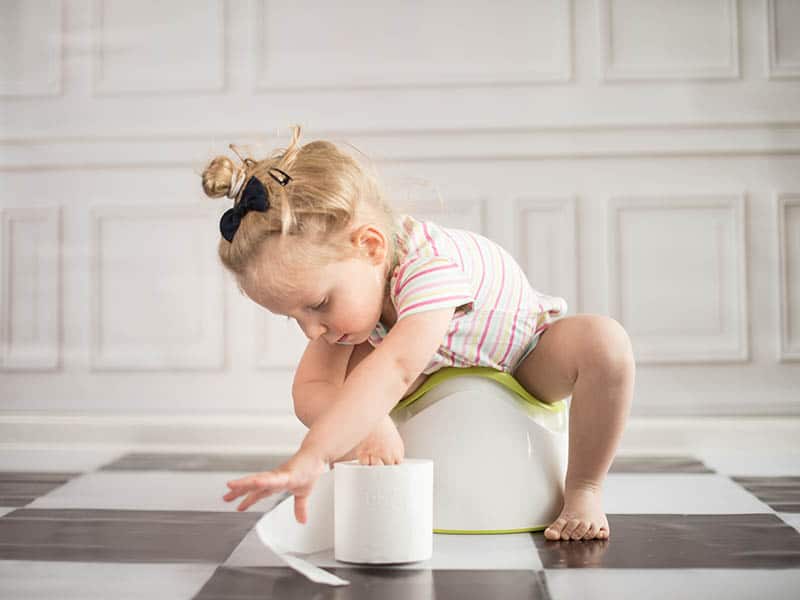
Of course, this means keeping an extra set of fresh, dry pull-ups, diapers or underpants, and pajamas on the side as well as a blanket to get them out of their wet messes quicker.
I’d also suggest securing a night light and your child’s favorite toy nearby to use as something to get them back to sleep – it makes for a much easier process than if you don’t have them nearby.
And yes, this also means a few more loads of laundry to take care of, but that’s to be expected during this period and is nothing new.
Just tough it out for a bit and it’ll be over and done with before you know it.
8. Be the lucky parent who doesn’t need to deal with bedwetting
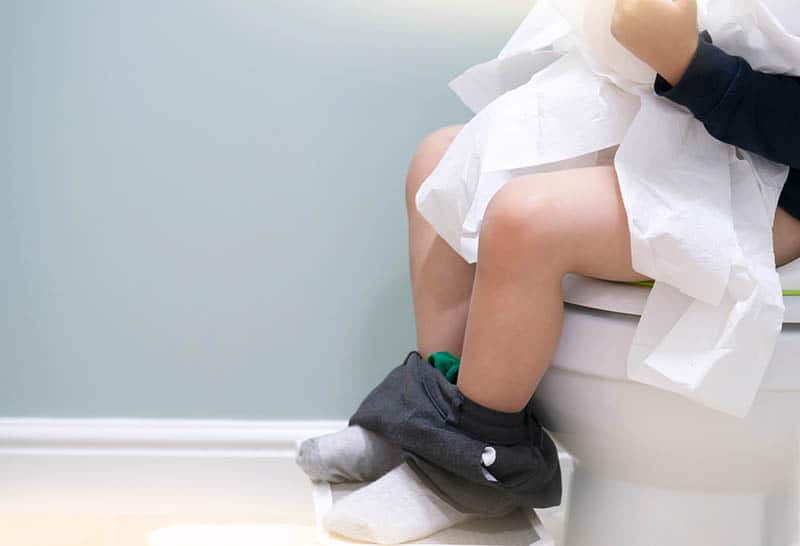
Parents whose kids catch on to the process so quickly that they can already control their bladder patterns like grown-ups.
This leads to a lot less stress and hassle around trying to maneuver your schedules for when you need to night time potty train your kids.
If you’re one of those, count yourself lucky. You don’t need to worry about it as much as some of us and you truly have a bright child on your hands.
9. Don’t make a big deal out of it
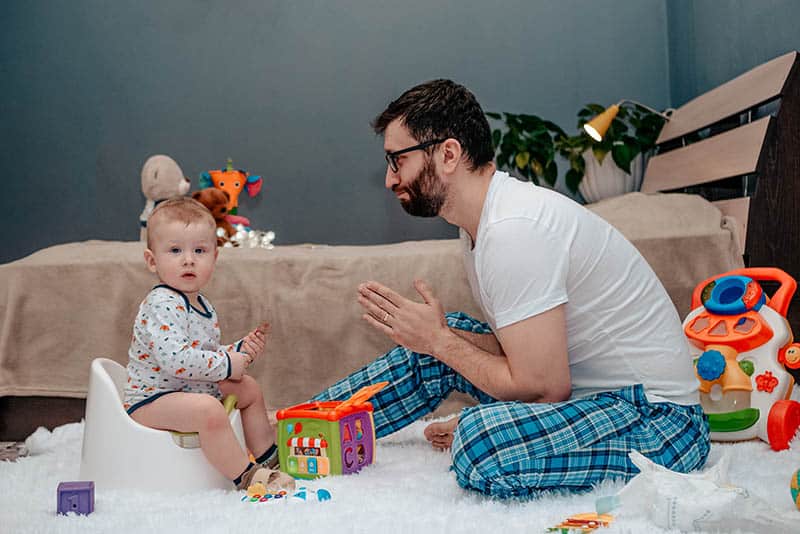
Not to mention, they can sense when you’re stressed too – they can see it in your face – so if your child is still wetting their bed well past the intended period for night time potty training, don’t fret too much about it, they’ll learn soon enough.
The added stress and pressure might just be the thing that’s making the matter worse in the first place and causing your preschooler’s bladder muscles to relax and let loose at the most unexpected times.
This is a bodily function that your kids will learn in time. Just take a deep breath and relax.
Your role in this scenario is to try and expedite it, but even if you weren’t around to help them with their training, your little ones would be smart enough to figure it out on their own in time.
Failing to teach them doesn’t make you a bad mom in any aspect.
Teaching your kids to stop wetting their bed is definitely an ordeal, one that isn’t easy to accomplish and you shouldn’t feel bad for not succeeding.
You’re not alone in the matter, believe me. Quite a number of moms don’t and I was one of those when it came to my girl.
It took her just before she started going to school to get a hold on her bladder.
I had that same problem too when I was young as well apparently, so it might just be something that runs in the family on the female side of things, who knows.
10. Check for any problems that might be interfering with the training
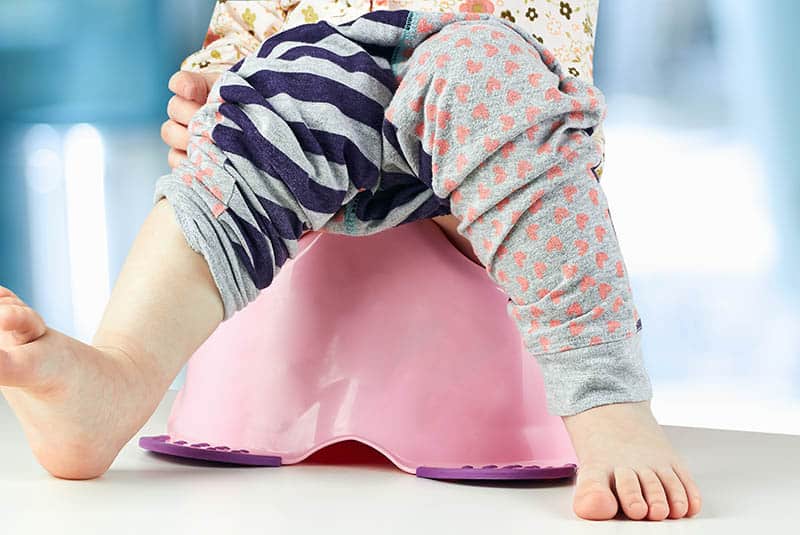
Another problem that could potentially be impacting them is any sort of family drama or simply something that might seem stressful to them – something bad happening at kindergarten, or them not getting their way.
Or, God forbid, some sort of health issue.
Any number of these could lead to a slower learning process for your child and it’s wise to take them to the pediatrician so they can rule any of these out.
Though, if the problem is stress, you can also take a step back and look for the potential source of the problem, identify it, and try to eliminate it.
It’ll make it much easier for your child to focus on the matter at hand once the source of their worries has been eliminated.
Some people suggest offering rewards as incentives to accomplish the training, but I’d personally advise against it.
It’ll only lead to the child always expecting a big reward for not wetting the bed or smaller things.
The only thing that’ll end up happening is you spoiling the child down the line.
In Conclusion
Having to deal with night time potty training is no easy feat.
It takes a lot of dedication, organization, and sheer willpower to not worry over it like I did the first time around.
But, if you’ve managed to go through all of these steps and your child has officially bid their diapers goodbye and taken one step further to becoming a big kid, congratulations, you did it.
There’s nothing left to do but celebrate as you check one more thing off your mothering list.
Now this is when you should actually be getting your little one the reward they deserve for accomplishing this tumultuous task, anything from a favorite toy to something as simple as underwear or a shirt with their desired print on it.
You could even go as far as organizing a small party with all of their friends invited to treat them to a winner’s feast of some sort.
That will about do it this time around, mamas.
I do hope that all of my little writeups are helping you out in making your busy and interesting lives a bit easier to manage, and that your kids are coming out of it happier and brighter than before.
Until next time!
References:
Mayo Clinic staff, “Bed-Wetting”, on Mayo Clinic 2019.
Like this post? Please share or pin it for later. You can also stay in the loop and follow us on Facebook, Instagram or Pinterest.
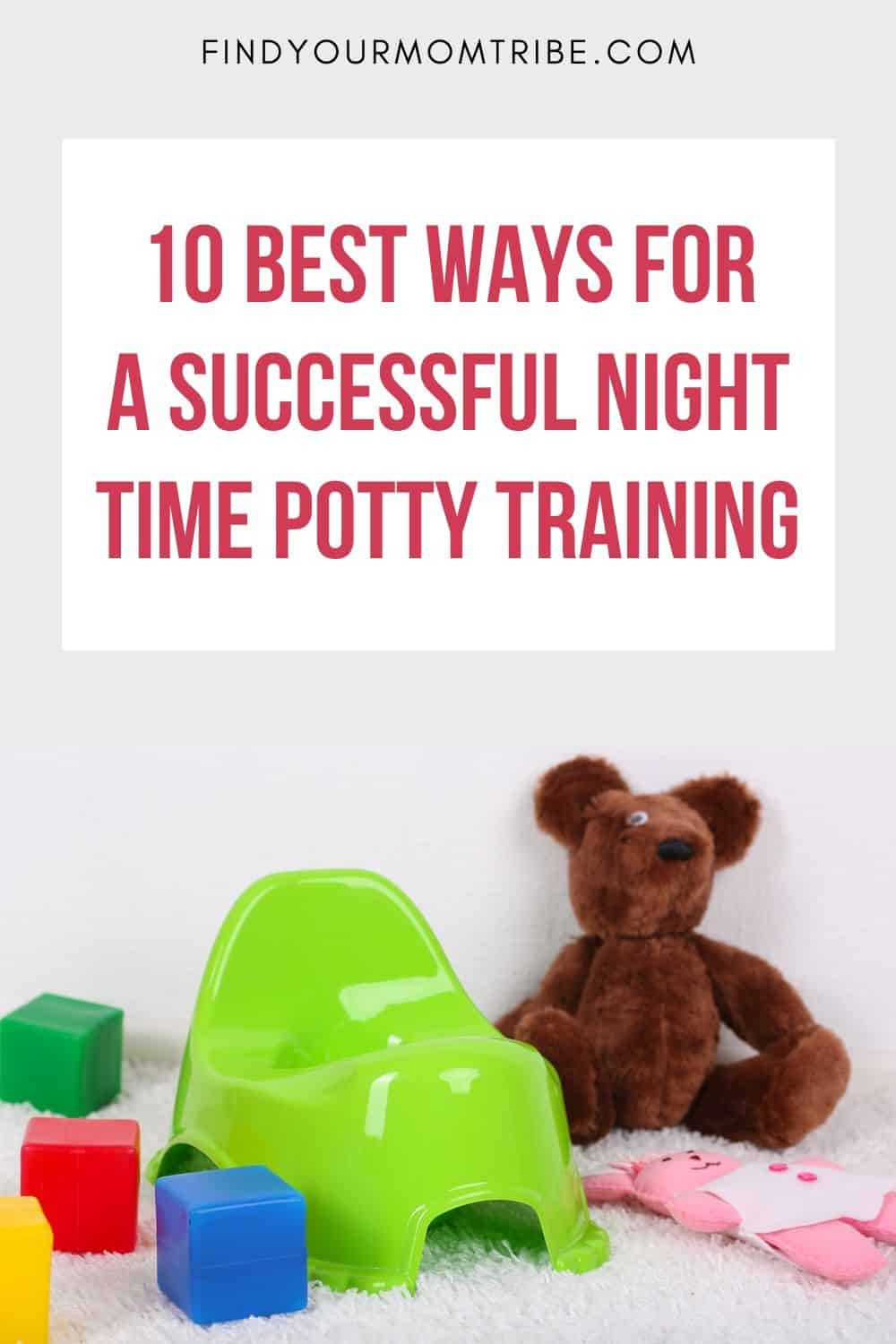
This post contains affiliate links. Please see our full disclosure for more info.

